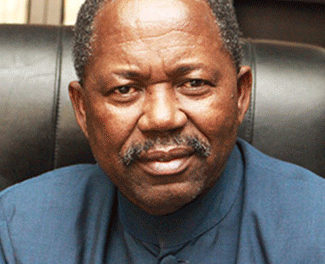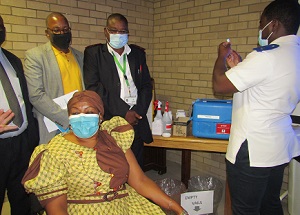
New broadcasting code ruffles feathers
The new regulations regarding the Code of Conduct for broadcasting service licensees set by the Communications Regulatory Authority of Namibia (CRAN) were met with opposition from various stakeholders in the media sector.
Some of the local broadcasters during a Public Consultative Meeting on the Broadcasting Code of Conduct cried foul and said the draft code seems to be a one-size fits all blanket that CRAN wants to cover everyone in, while others questioned CRAN’s impartiality as most of the regulations in the code of conduct will not be enforced on to the national broadcaster NBC.
Speaking at the meeting held this week, CRAN Acting chief executive officer, Jochen Traut said that the ‘minimum quality of service standards regulations’ will come into force with the publication of the final notice in the Government Gazette.
“The regulation is applicable to all telecommunications and broadcasting service licensees operating in the country. The purpose of the regulations is to set out the minimum quality of service standards Namibians must receive from licensees. The new regulations also stipulate reporting requirements for licensees and prescribe a specific reporting format. The quality of service standards and reporting is used to specify the level of quality of service that customers should receive, compared to the quality of service offered by licensees in Namibia,” he said.
The new regulations regarding the ‘watershed period’, advertisement, elections, age advisory, and content are said to infringe the rights of various broadcasters. According to CRAN the ‘watershed period’ for free to air television broadcasting service licensees is between 21h00 and 05h00 and 20h00 and 05h00 for subscription television broadcasting service licensees, local licensee broadcasters shall ensure that no more than four advertising breaks per hour in case of television broadcasts, and the the advertising content for any programmes shall not exceed 30 seconds in a programme lasting five minutes; two minutes in a programme lasting 10 minutes; three minutes, in a programme lasting 15 minutes and five minutes in a programme lasting 35 minutes.
CRAN said it shall be the duty of every broadcasting licensee, through the broadcasting of local content to encourage the development of Namibian and African expression by providing a wide range of programming that reflects Namibia and African attitudes, opinions, ideas values and artistic creativity by displaying Namibian and African cultures and entertainment through music, dramas, series, news, soapies, documentaries, current affairs, movies, films and other programmes.
The draft code also states that pursuant to the provisions of section 93(1) and regulation of these regulations, the public broadcasting licensee has five years from date of commencement of this code within which to attain 20% local content. All television broadcasting service licensees (Commercial and Community) have three years from date of commencement of this code, within which to attain 20% local content and all radio broadcasting service licensees (Commercial and Community) have three years from date of commencement of this code within which to attain 20% local content.
“Today marks a dark day for media freedom in Namibia, what we have here is 19 pages of strict rules which have dismissed the code of ethics developed by the Namibian media. What we have here is a duplication of what already exists, there’s no control board for age advisory, who will make these decisions,” said University of Namibia Media Studies lecturer Robin Tyson. Tyson said that it is gross interference to instruct a commercial broadcaster on the number of adverts they should air as well and questioned the regulating body on how they would regulate local content.
Other stakeholders called for musicians to earn a place on their radio stations by delivering quality recorded music, and said that CRAN regulating the number of adverts they air would only create problems for them as most of them solely depend on adverts to keep their stations operating.
Traut said that, the regulating authority will address all the queries raised regarding the broadcasting code of conduct by some of the stakeholders and will look into finding what is applicable regarding local content as well as the age advisory on programmes.











































